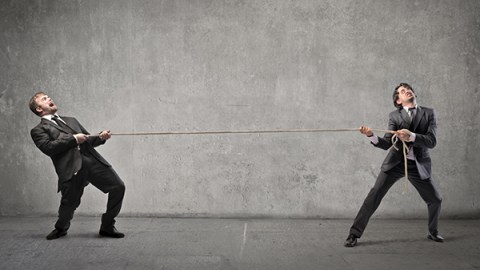The Simple Ways We Suffer

We usually reserve the term ‘suffering’ for major traumas: death, divorce, political upheaval, natural disasters. While such tragedies certainly account for much of our personal and social anguish, the minor moments of misery accumulating in our memory does the greatest damage.
Oddly, humans are most resilient in the face of overwhelming odds—I recall walking the streets of Manhattan on Sept 11, 2001, talking to and checking in with people I would never usually have communicated with. Everyone was seeking an explanation, and in that context, we were all connected to basic human needs of safety, shelter and community. In the following weeks, lending a hand seemed second nature.
Personal grievances cause cortisol to remain circulating in our blood, slowly chipping away at our emotional foundation, leading to long-term health issues and a less than optimistic outlook on life. The irony is that these emotional responses to situations are well within our capability to change, while we don’t have much choice in dealing with larger scale issues.
Buddhism begins with the notion that human beings suffer due to our incorrect view of the world. We think everything should operate one way, and when it doesn’t, we hold the planet accountable for its injustices. We blame the ‘other,’ that ambiguous group of people who we don’t really know but are certain to be at fault for our suffering (foreigners, homosexuals, politicians, other communities). Invisible people make perfect scapegoats.
I notice the subtle ways we suffer in the laboratory I work inside of every day: the yoga studio. In that space I observe the great many problems people have with stillness. The idea of not moving is much more oppressive than whatever workout regimen I throw at them. It is not just quiet that irks us; the notion that things should be exactly how we want them to be crawls under our skin as well.
One example occurred this week; the same issue has happened a handful of times in previous years, though with different responses. A woman was practicing directly underneath one of the studio’s speakers and asked me to turn the music down. Given that my class is specifically designed with music, it needs to remain at a certain level throughout the practice. So I offered to move her to another spot not near speakers, assuring her the volume would be much lower. Instead of doing so, she got angry and stormed out of the room.
It reminded me of a man who, many years ago, came to my class with earplugs. He constantly reminded me that he liked to practice yoga with no music at all. Yet week after week he showed up to my class, sometimes at different studios. And every time he’d have to look around the room as he couldn’t hear the instructions, or anything much at all.
One other example comes to mind. A woman nearly yelled at me for not adjusting her enough, as well as not demonstrating enough on one side of the room. (I always demo in the middle of the class.) She then informed me that she was blind in her right eye. Yet she had set up her mat in the front corner all the way to the left side of the room—the worst possible spot for her to be in, as she had no sightline whatsoever. There was space on the other side of the studio, yet she had chosen to put herself in the most helpless position possible.
People come to yoga for any number of reasons, ranging from healing aforementioned life traumas to toning up their thighs. I don’t find the why important. If the practice is meaningful in some way, then the fact that they stepped inside the room is all that matters. Yet how someone acts inside of that room is often indicative of how they act outside of it.
Anxiety plays an important evolutionary role in our species. A heightened awareness of the creatures lurking around camp and what plants were edible meant life or death. Yet our ancestors did not maintain high levels of cortisol; when danger passed, they calmed down.
Given that we do not have the survival necessities of our forebears, it seems strange that we cling to issues that are, in a ‘bigger picture’ sense, not really issues. While our culture has very real problems at hand—climate change, economic collapse, the lowest Congress approval rating on record—the fact that certain segments of our society are addicted to matters like gay marriage, abortion and even contraception is ludicrous. And still, because some believe reality should be dictated by their beliefs, they suffer, and cause others to suffer along with them.
Last night I was in a conversation with an old friend about a documentary he’s producing on New Orleans jazz funeral. The deep Yoruba and Haitian influences on that region’s music resulted in a burial ritual that involves plenty of jazz music. It reminds us that death can be a celebration, as it’s a natural part of living. But in order to honor death in such fashion, you have to celebrate life as well. Such a thing is impossible if we suffer so simply every day, instead of remembering that we’re all just going along for this ride.
Image: ollyy/shutterstock.com




